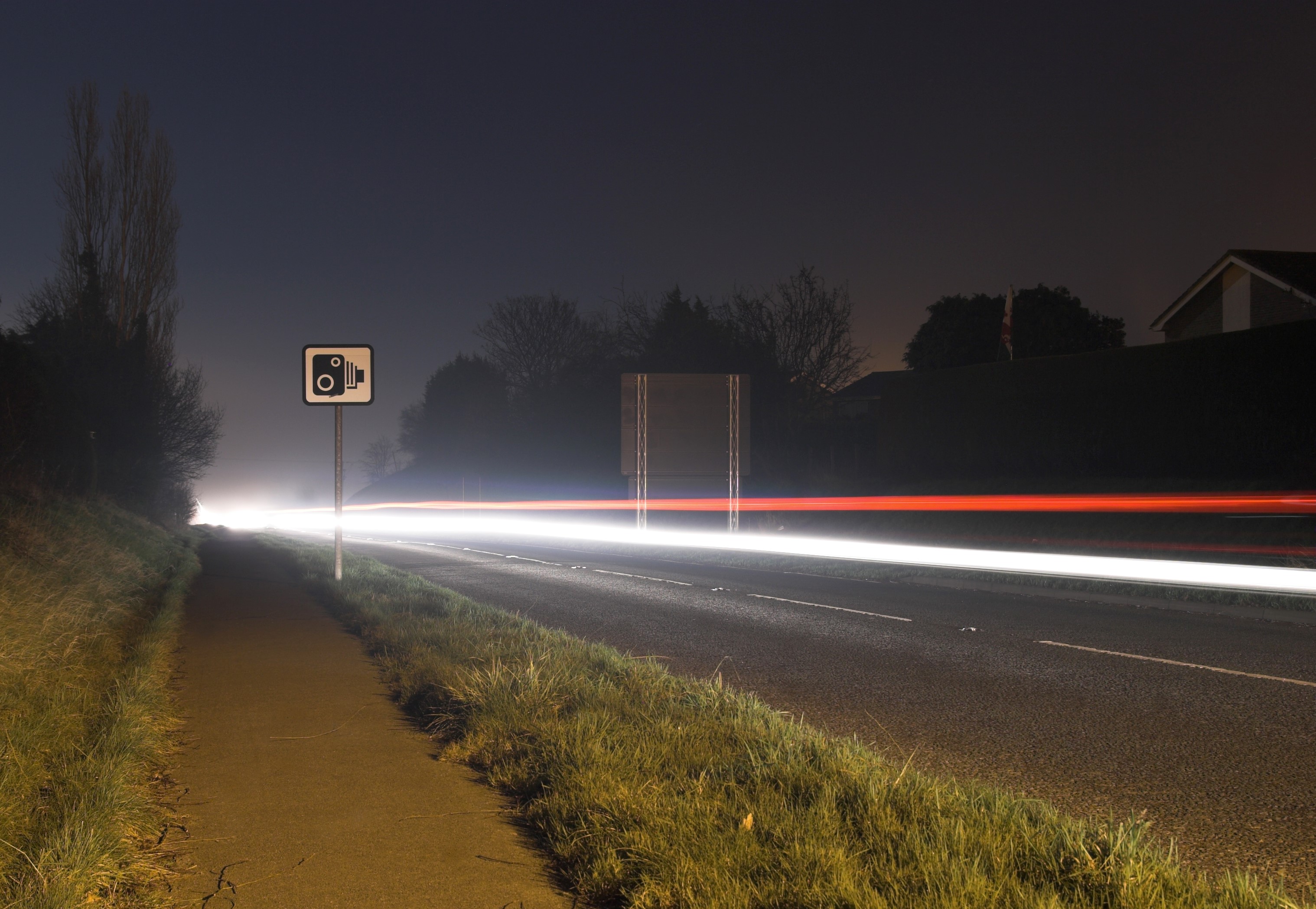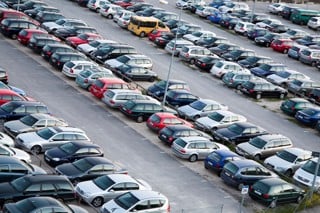
Fines and penalties ‘dropped off a cliff edge’ when lockdown started, according to one leading leasing company, reports Matt de Prez
FN50 leasing companies handled significantly fewer fines and penalties this year, as the coronavirus pandemic resulted in reduced car use and relaxed restrictions.
The headline figure shows a reported 499,191 fines and penalties were received by FN50 leasing companies in the last year, a drop of around 150,000 compared with 2019’s figure.
Just under half of the total number of FN50 respondents supplied data in relation to the number of penalties processed this year, (slightly fewer than 2019), but half of the top 10 did, including the UK’s biggest, Lex Autolease, so the sample size is comprehensive.
Taking into account average figures and risk fleet weighting, analysis of the FN50 suggests the total number of fines and charges incurred could be as high as 1.5 million, with a combined value of £60m (with the average fine costing £40).
The number of speeding tickets received by FN50 leasing companies fell by 16% this year – no surprise with the number of journeys falling during lockdown – while the number of parking tickets also showed a drop, but by only 0.7%.
Congestion charge penalties increased by 28% perhaps reflecting an increase in people swapping public transport for their company (or personal) car to commute into the city centre, while ‘other’ fines, which includes lane contravention, jumping red lights and ULEZ charges, dropped by a mighty 41%.
Nick Hardy, sales and marketing director at Ogilvie Fleet, says the trends have started increasing since lockdown restrictions were relaxed and traffic levels return to normal.
“The number of fines and penalties certainly did drop off a cliff edge when the lockdown started, but since July it has gone back to pre-Covid levels,” Hardy explains.
Ogilvie recorded 14,683 fines in 2019 and 14,453 this year, a reduction of just 1.5%, but the number of parking fines it processed continued to rise.
“We are growing our fleet, so I’m not surprised we are seeing more parking fines.
"It is an increasingly burdensome administrative headache.
“We haven’t seen an increase in driver responsibility for fines. In lots of cases, where a ticket is left on the window, the way to handle it is the driver just takes it and pays it. I think there’s a feeling that, because it’s a lease car, it’s not their problem.”
Not all companies were impacted in the same way, however.
Helen Lara, fleet compliance administration team leader at Hitachi Capital Vehicle Solutions, says: “The volume has slightly reduced, but, due to the nature of our fleet, a large majority of our vehicles were still operational, so we have not seen any drastic reductions.
"What we have seen is some issuing authorities issuing fines later than usual for offences.”
FN50 data only considers fines and penalties that are sent to the vehicle’s registered keeper.
If a driver is stopped at the roadside or given a physical ticket and they pay the fine, the leasing company will be unaware that the fine was incurred.
Analysis by Lex Autolease found that motoring fines for its customers increased at a slower rate in 2019, as the percentage of company car and van drivers incurring penalties for minor traffic and parking offences increased by 3% year-on-year, compared with a 60% cumulative increase over the past three years.
The latest figures from the UK’s largest leasing provider indicate an improvement in driver behaviour as the value of charges incurred by drivers didn’t grow for the first time last year, bucking the trend of yearly increases from £10.7m in 2016 to £17.1m 2019.
Kim Morris, motor operations director at Lex Autolease, says: “Company car drivers are often more likely to incur fines and penalties on the roads when compared with ordinary motorists, as the pressure to hit deadlines and attend meetings on time can lead to poor driver behaviour.
“Fleet managers have placed a great emphasis upon driver health and safety in recent years and it’s encouraging to see evidence that this is starting to pay off. This is based on a considerable slowing in the rise of the number of fines incurred and a decrease in the number of fines for commonplace offences, including bus lane driving and congestion charges.
“However, our analysis shows that there’s still more businesses can do to educate their employees to bring these numbers down further. Continuing to invest in driver education can help to modify employees’ driving habits and, in turn, save businesses unnecessary outgoings each month.”
Speeding on the rise?
Overall, the FN50 data shows a reduction in speeding fines, but reports during the lockdown period suggest a spike in the number of drivers exceeding the limit and there are fears it will continue if the nation’s roads remain quieter.
Greater Manchester Police caught 6,200 drivers breaking the speed limit in the first month of lockdown restrictions, despite a ban on all non-essential travel.
Police forces up and down the country recorded similar spikes, while telematics firm AX says speeding during lockdown tripled according to its data.
“Speeding tickets are likely to increase,” says Hardy. “Maybe until people calm down and the change in the quietness of the roads becomes more normal, we could see a problem with more speeding fines.
I’m hoping short-term, but the less restricted roads are causing an increase in speeding fines.”
Drive for lower emissions
The arrival of clean air zones (CAZs) across the UK could cause a rise in the numbers of fines received by FN50 leasing companies next year.
The London congestion charge, which was introduced in 2003, is still generating a large number of fines.
Leasing providers are still receiving, on average, 1,600 congestion charge infringements per year – suggesting that drivers still lack the education needed to make payments on time.
Last year also saw the first ultra-low emissions zone (ULEZ) in London, replacing the previous £10-per-day toxicity charge.
It operates alongside the congestion charge and drivers of older, non-compliant cars that enter the ULEZ at any time are charged £12.50 per day.
While most lease vehicles are likely to comply, it’s possible some fleets will still have older vehicles that need to pay.
Other cities are expected to follow suit by introducing CAZs, with Leeds and Birmingham set to launch their schemes in early 2021.
The emissions standards enforced by most CAZs are not onerous and won’t affect Euro 6 diesel and Euro 4 and above petrol models.
The recent influx of plug-in hybrid and electric cars, boosted by attractive benefit-in-kind (BIK) tax rates, is likely to stem the impact of emissions-based fines, although plug-in hybrids will no longer be congestion charge exempt from next year, which may catch some drivers out.
Admin charges
For each fine processed by a leasing company, there is usually an admin charge for the customer.
This year’s FN50 survey asked leasing providers what charges were being applied to each fine type.
The data reveals that, on average, leasing companies charge £17.10 for each fine handled.
That’s an income of £8.5m for all the reported fines in this year’s survey and a potential income of more than £25m using our estimated total fines figure.
Divided out among the FN50 that’s around half-a-million per company.


















Login to comment
Comments
No comments have been made yet.